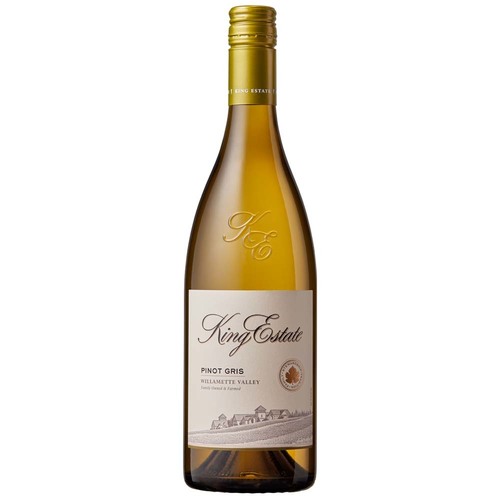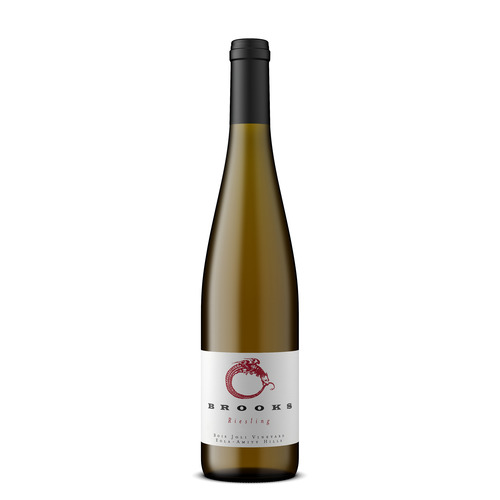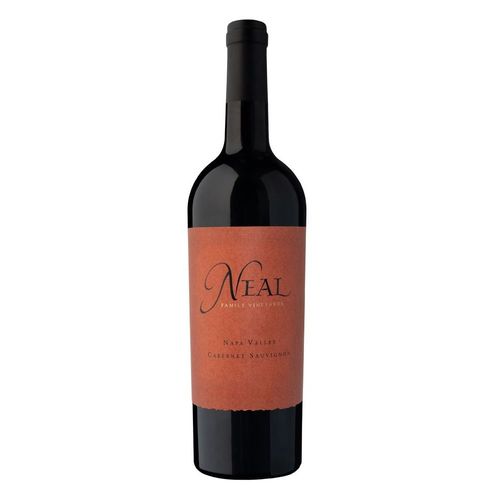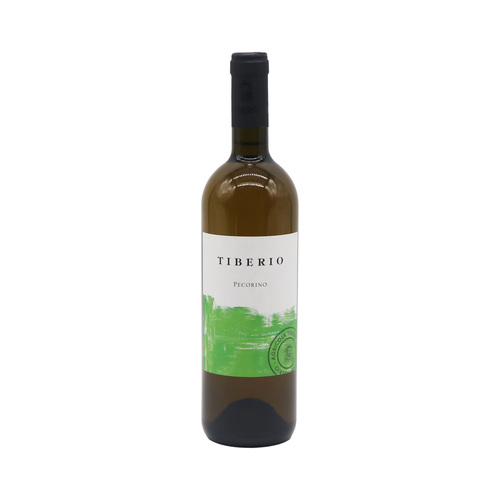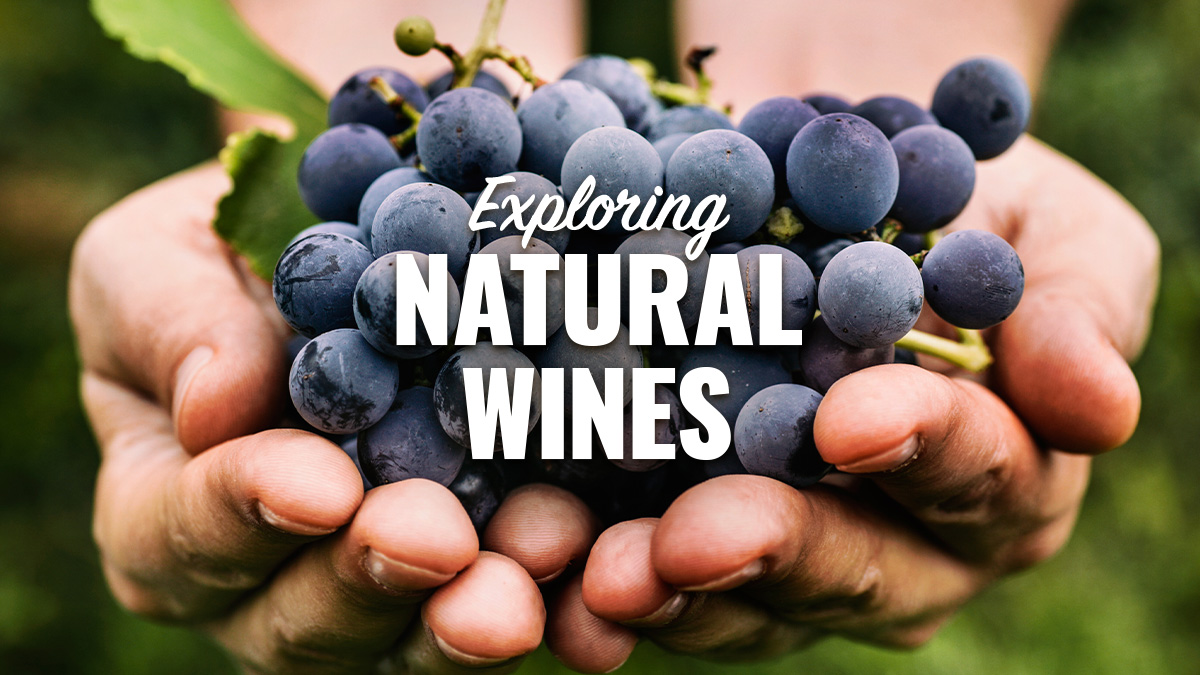
What Are Natural Wines
Last year, we wrote a blog about organic wines. While it’s easy for one to think that organic wines and natural wines are the same, there are differences and this blog is for you. This blog is also for those of you who think all wines are natural wines because they come from grapes and grapes are found in nature.
So what are natural wines?
While the term “natural wine” is not regulated by a specific set of rules or guidelines, it’s a commonly accepted definition that natural wine is wine made with minimal intervention both in the vineyard and in the cellar. They are often made from organic grapes and sustainable farming practices that avoid using synthetic pesticides, herbicides, and fertilizers.
To limit additives and manipulation, natural wines only use native yeasts on the grape skins, rather than commercial yeasts. Natural wines also use little to no sulfites (better known as sulfur dioxide, a common preservative used in the winemaking community to prevent oxidation and bacterial spoilage) and instead maintain their stability through careful winemaking practices. Natural winemakers avoid additives such as additional acids, sugars, tannins, or other chemicals to manipulate the wine’s flavor or structure.
Natural winemakers often focus on the terroir (the unique characteristics imparted by the vineyard such as location, soil, climate, and grape variety) to help the wine express its natural flavors and nuances without excessive intervention.
Natural wines are typically bottled with little filtration or fining. While it can leave them slightly cloudy or with sediment, this approach is believed to preserve more of the wine’s natural flavors and textures.

How Are Natural Wines Made?
Natural wines are made with a philosophy of minimal intervention both in the vineyard and in the winery. This means an emphasis on sustainability, minimalism, and a hands-off approach to allow the grapes and the wine to speak for themselves, reflecting the unique characteristics of their origin. And while all natural wines are different, many follow this way of winemaking.
Vineyard Practices:
Like all other wines, natural wines start with grapes. For these particular grapes, they are grown from organic or biodynamic farming practices. The grapes are often harvested by hand to ensure careful selection and handling of the fruit. This helps preserve the integrity of the grape clusters. The producers of natural wine often try for dry farming practices, and rely on natural rainfall and minimal irrigation to stress the vines, which can lead to more concentrated flavors in the grapes.
Winemaking Process:
The emphasis on minimalism goes to the cellar too as the goal is to allow the wine to ferment and develop with as little manipulation as possible. So instead of inoculating the grape juice with commercial yeasts, natural wines undergo spontaneous fermentation. This means the fermentation process is initiated by the wild yeasts naturally present on the grape skins and in the winery environment. Natural winemakers will also rely on carefully handling of the grapes and maintain clean winemaking practices to keep the stability of the wine and limit the amount of preservatives, such as sulfites, to close to zero as possible. On top of that, natural wines are made without the addition of additives such as acids, sugars, tannins, or other chemicals. The focus is on allowing the wine to develop its flavors and characteristics naturally. After fermentation, natural wines may be aged in neutral containers such as old oak barrels, concrete tanks, or stainless steel. The choice of aging vessel depends on the winemaker’s preference and the desired style of the wine. Finally, the wine is bottled with minimal intervention to preserve its natural flavors and texture.

Are Natural Wines Better For You?
Better is such a subjective term. So raising the question of “are natural wines better for you” really depends on your definition of better.
Little research has been done when comparing natural wines and conventional ones. And while natural wines may appeal to those seeking minimal intervention and organic practices, they are not universally considered superior or healthier in all aspects.
As we’ve stated earlier, natural wines generally have minimal additives and use little to no sulfites. Many natural wines are produced from grapes grown using organic or biodynamic farming practices, which promote soil health and biodiversity. Some believe wines made from grapes grown in these sustainable ways without additives are healthier because they don’t have synthetic chemicals that could potentially harm humans and the environment.
Ultimately, whether natural wines are “better for you” can depend on your own taste and sensitivities. Some people find that natural wines align better with their values regarding environmental sustainability and minimal intervention in food production. Others may prefer conventional wines for their consistency or specific flavor profiles. It’s all up to you.
Best Natural Wines?
Now that we know more about natural wines, it’s time to learn about some of our favorite bottles! These represent the best of the best natural wines and you can find them all at your nearest Spec’s!
King Estate Pinot Gris
Their flagship wine, the King Estate Willamette Valley Pinot Gris, exemplifies global excellence. This 2016 vintage, sourced primarily from King Estate’s certified biodynamic and organic vineyard, as well as sustainably-farmed vineyards in the Willamette Valley, offers a pale straw color with glistening edges and aromas of ripe pear, fresh cantaloupe, and honeysuckle. Its juicy flavors of just ripe pear, wild honey, and pineapple are balanced by a viscous texture and clean, racy acidity, ensuring ageability over the next decade. Fermented in 100% stainless steel tanks with controlled temperatures to maximize fruit character, this vintage benefited from sur lie aging for 4 months before bottling.
Add to cartBrooks Bois Joli
This delicious 100% Riesling showcases tropical notes of pineapple mango and fresh coconut. The finish shows hints of herbs star fruit and quince. Just a touch of sweetness! Grown at the Brooks Winery in the Willamette Valley of Oregon, this winery is known for its commitment to sustainable and biodynamic practices, which often influence the quality and character of their wines. The ‘Bois Joli’ Semi-Sweet Riesling reflects the terroir of its vineyard and the meticulous winemaking practices that Brooks Winery is known for, making it a distinctive choice for Riesling enthusiasts and those exploring semi-sweet wines alike.
Add to cartNeal Family
Neal Family Vineyards produces a highly regarded Cabernet Sauvignon that reflects the characteristics of Napa Valley terroir and the meticulous craftsmanship of the Neal family. This wine is known for its richness, depth, and complexity, often showcasing intense flavors of dark fruits such as blackberry, cassis, and plum, accompanied by notes of cedar, tobacco, and dark chocolate. Making it a sought-after choice among enthusiasts of premium Napa Valley Cabernet Sauvignon.
Add to cartGirasole
This wine presents a lovely pale lemon yellow hue and offers aromas reminiscent of lychee fruit, white peach, mandarin orange, and zesty lemon marmalade. Its initial taste is crisp and vibrant, leading into a medium-bodied mid-palate that is generously satisfying. The finish is refreshingly crisp and invigorating, simultaneously quenching and leaving a desire for another sip.
Add to cartTiberio
A distinctive white wine crafted by the Tiberio winery, located in the Abruzzo region of Italy. Made primarily from the Pecorino grape variety, indigenous to central Italy, this wine is celebrated for its unique character and high quality. On the palate, it is often described as refreshing with a pronounced mineral edge, contributing to its overall complexity. It tends to have a medium to full body with a good balance between its acidity and fruitiness, making it versatile and enjoyable as both an aperitif and a companion to numerous dishes. Tiberio Winery, known for its commitment to traditional winemaking techniques and sustainable practices, ensures that their Colline Pescaresi Pecorino reflects the unique terroir of Abruzzo.
Add to cartSo Are You Ready to Try Natural Wine?
If you’re a wine lover and interested in trying natural wines, you know what to do. Visit your local Spec’s and grab yourself a bottle. Or a case. Whichever you prefer.


